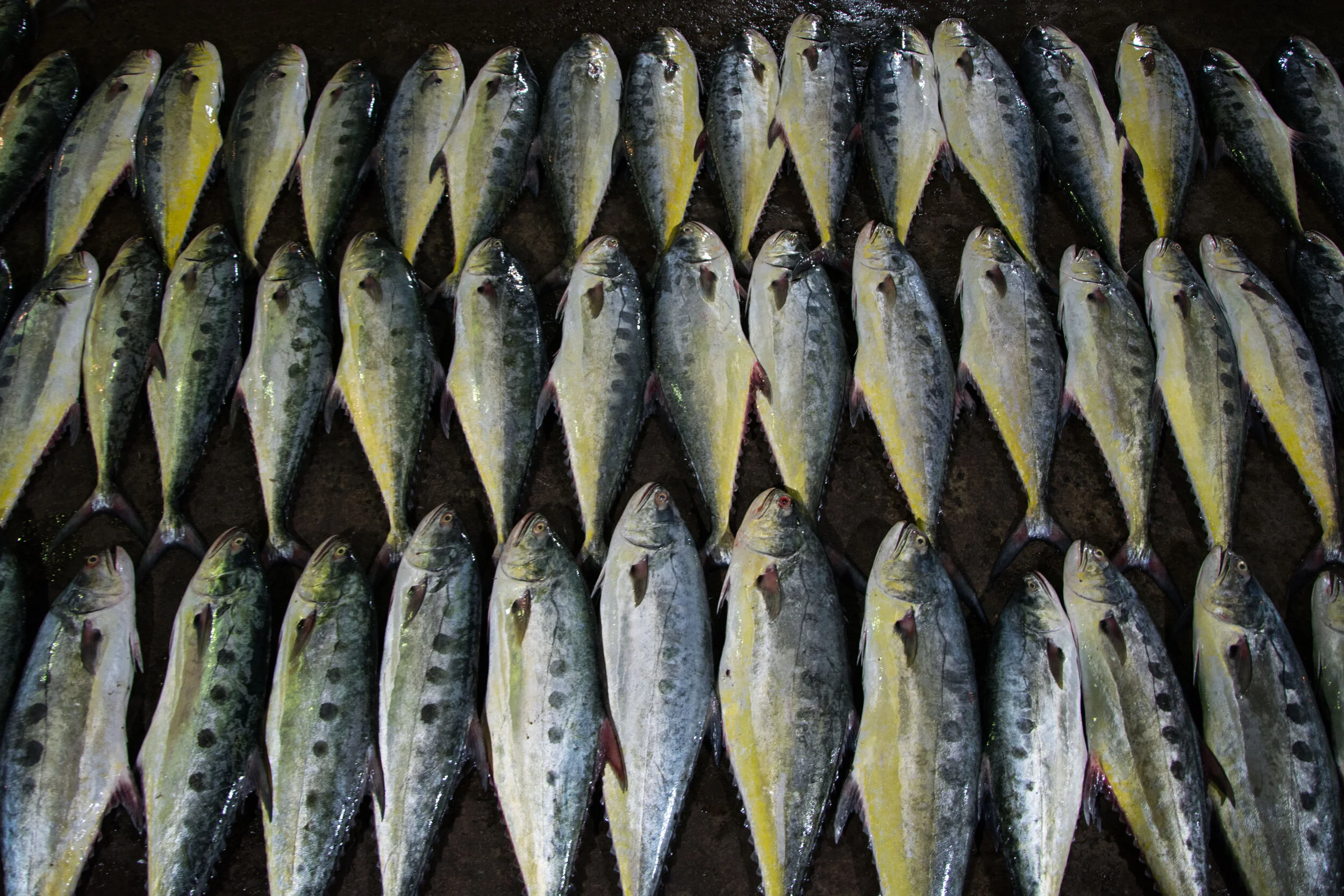
Overview
Overfishing is a critical issue that poses a significant threat to the health and sustainability of our oceans. It occurs when fish populations are harvested at an unsustainable rate, depleting their populations faster than they can naturally reproduce. This imbalance disrupts the delicate marine ecosystems, negatively impacting not only the targeted fish species but also other marine life in the food web. Overfishing is driven by the ever-increasing demand for seafood worldwide, and if left unaddressed, it could lead to irreversible damage to the marine environment.
Definitions
Bycatch - the term used to describe animals that are caught Incidentally in a fishery.
Discard - the name given to the portion of each catch that is thrown back into the ocean.
Deep Dive
As humanity has developed, our ability to exploit the oceans resources has eveloved imensley. Where fishers were once restricted to coastal regions, they can now travel further offshore, drop lines and nets deeper, stay at sea far longer and preserve their catches more effectively.
Overfishing is a multifaceted problem that extends beyond the depletion of specific fish stocks. It poses ecological, economic, and social challenges, affecting marine biodiversity, coastal communities, and global food security. The interplay of various factors contributes to the overfishing issue, including increased global demand for seafood, advanced fishing technologies, inadequate fisheries management, and illegal, unreported, and unregulated (IUU) fishing practices. Let's delve deeper into some case studies of overfished stocks that illustrate the severity and complexity of the problem.
Case Study 1: Atlantic Cod (Gadus morhua):
The Atlantic cod, once abundant in the North Atlantic Ocean, has been severely overfished for centuries. During the 1980s and 1990s, technological advancements in fishing gear and methods, coupled with an insatiable demand for cod, led to a rapid decline in cod populations. The collapse of the cod fishery had devastating consequences for Newfoundland and Labrador, Canada, where fishing had been a way of life for generations. In response to the crisis, Canada imposed strict fishing quotas and moratoriums on cod fishing, aiming to allow the species to recover. Despite these efforts, the Atlantic cod populations have struggled to rebound due to factors like ecosystem changes and climate variability. The recovery process of this iconic species is ongoing, underscoring the complexities of restoring overfished stocks.
Case Study 2: Bluefin Tuna (Thunnus thynnus):
The bluefin tuna is a highly prized species, particularly in the sushi market. Its lucrative value has led to intensive fishing pressure and rampant overfishing, particularly in the Mediterranean Sea and the Atlantic Ocean. Bluefin tuna populations have plummeted to critically low levels due to both legal and illegal fishing practices, including large-scale industrial fishing and the use of purse seine nets. To address this issue, the International Commission for the Conservation of Atlantic Tunas (ICCAT) implemented stricter fishing quotas and regulations on bluefin tuna catches. Additionally, some consumer awareness campaigns have urged people to avoid consuming bluefin tuna to reduce demand and support conservation efforts. While there have been some positive signs of recovery, the conservation of bluefin tuna remains a contentious and challenging task.
Case Study 3: Chilean Sea Bass (Dissostichus eleginoides):
The Chilean sea bass, also known as Patagonian toothfish, is another prime example of overfishing-driven population decline. This deep-sea species, highly prized for its delicate flavor and texture, was heavily exploited in the Southern Ocean. Illegal, unreported, and unregulated fishing, in particular, contributed to the rapid decline of Chilean sea bass populations.
To combat overfishing, the Commission for the Conservation of Antarctic Marine Living Resources (CCAMLR) established catch limits and strict regulations on the fishing of Chilean sea bass in the region. By controlling fishing activities and implementing surveillance measures, CCAMLR has made progress in curbing illegal fishing and stabilizing the population of this commercially valuable species.
Challenges in Addressing Overfishing:
IUU Fishing: Illegal, unreported, and unregulated fishing remains a significant challenge as it undermines efforts to manage fish stocks sustainably. Enhanced monitoring and enforcement are essential to combatting these illicit activities.
Lack of Data: Insufficient data on fish populations and fishing activities can hinder effective fisheries management. Improved data collection and research are crucial to better understand the status of fish stocks and their ecosystems.
Political and Economic Factors: Political will and economic interests sometimes clash with conservation efforts, making it difficult to implement and enforce sustainable fishing practices.
Global Demand for Seafood: As the world's population grows and incomes rise, the demand for seafood continues to increase, putting further pressure on already overexploited fish stocks.
Climate Change and Ecosystem Shifts: Environmental changes, including rising sea temperatures and ocean acidification, can disrupt marine ecosystems and impact the distribution and abundance of fish species.
Overfishing is a significant environmental challenge with far-reaching consequences. Through a combination of responsible consumer choices, effective fisheries management, and international cooperation, we can work towards restoring overfished stocks and protecting the marine biodiversity essential for the health of our oceans. By supporting initiatives like Fish Free February and other sustainable seafood programs, individuals can play a vital role in preserving marine ecosystems and ensuring the long-term viability of our planet's fish populations. Only through collective action can we create a sustainable future for both the oceans and the people who depend on them.
Hope
Despite the severity of the overfishing problem, there is cause for hope. The oceans are incredibly resilient and if given a chance, fish populations can rebound. There are encouraging signs of progress and positive initiatives that provide hope for the future of our oceans. Some of these include:
Implementation of Fishing Quotas: Several countries and international organizations have adopted fishing quotas that limit the amount of fish that can be caught in a given region or during a specific time frame. These quotas aim to prevent overfishing and promote sustainable harvesting practices.
Marine Protected Areas (MPAs): The establishment of MPAs in various parts of the world has proven effective in protecting marine biodiversity and supporting fish stock recovery. These protected zones offer a sanctuary for marine species to thrive and reproduce without human interference.
Collaboration between Governments and NGOs: Governments and non-governmental organizations (NGOs) are increasingly working together to develop and enforce regulations that address overfishing. These partnerships focus on enhancing monitoring, control, and surveillance measures to combat illegal fishing activities and protect vulnerable marine species.
Strict rebuilding has allowed two rockfish species (the Bocaccio and Darkblotched) populations on the Pacific Coast of the United States have been declared rebuilt well ahead of schedule.
Initiatives
The International Pole and Line Foundation has been set up to encourage the use of pole-and-line as a fishing technique which greatly reduces incidents of bycatch and is a far more selective method compared with long-lining or many net fisheries.

